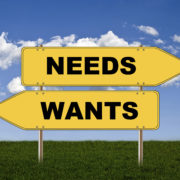Much needed Sukkot unity and your portfolio
As originally appeared in The Jerusalem Post on September 29, 2023.
“Only peril can bring the French together. One can’t impose unity out of the blue on a country that has 265 different kinds of cheese.” -Charles de Gaulle
I am all for standing up for what you believe is right. I also believe that sometimes it’s better to be smart than to be correct. Unfortunately, we are in an era where no one listens to someone with an opposing view, choosing to vilify them instead. Discourse in general and political conversations specifically is embarrassing. Having a civil, calm and intellectual discussion is a thing of the past. If you don’t agree with one side you are a leftist traitor and if you disagree with the other side, you can even be a libertarian, but you are called a supporter of a dictatorship. Instead of respecting an opposing view, we are no longer even willing to listen to something we disagree with. It’s sad but Israeli society has become so polarized that we could really use a hearty dose of unity.
Three years ago, Sivan Rahav Meir wrote, “In these desperate times we are mostly in need of two things: unity and happiness. More solidarity, mutual responsibility, and the feeling that we are in this struggle together, more optimism and positive feelings regarding our current situation. And in fact, these are the two central values of Sukkot.” She continues, “But how do we achieve these dearly desired goals? How do we unify our country and help people experience joy? Perhaps the answer is this: Sukkot arrives after Rosh Hashanah and Yom Kippur. There is a specific order to the holidays of Tishrei and it is not arbitrary. Only after days of serious introspection, fasting, and understanding that we are all in this together – we reach Sukkot. Only after the entire nation admits “We transgressed, we betrayed” and all of us take responsibility for our mistakes and stop blaming others, only then is it possible to truly come together.”
A central element of the Sukkot holiday is unity. We take the Lulav along with the other 3 species and hold them together as one unit and make the blessing and shake them. Each specie has its own specialness, and we take all those unique qualities and bring them together as one. During both the first and second temple periods, every 7 years the entire nation, men, women, and children came together for the Hakel ceremony in order to increase Torah observance and study, and foster an environment of fear of G‑d. In many ways, this was the ultimate expression of national unity.
It’s interesting that families are referred to as a unit as well. You have individuals who are part of a larger whole. Each one brings their own strengths and weaknesses to the unit.
Regarding family and Sukkot, Rabbi Moshe Bogomilsky writes, “That the mitzvah of sukkah represents unity is obvious from the fact that many families may eat together in the same sukkah. The Gemara (Sukkah 27b) says that, “All of Israel are fit to sit in one sukkah” — which means that unlike other mitzvot (e.g. four species) where each one must have his own object, one can build a sukkah and let everyone use it to properly fulfill the mitzvah of dwelling in a sukkah. Thus, sukkah is a mitzvah through which all of Israel becomes united.”
When it comes to investing money, unity plays a big role, except that there is another term for it. It’s called diversification.
Diversification
Diversification is an investment technique that uses many varied investments within one portfolio. According to diversification theory, a portfolio of different kinds of investments will, on average, yield higher returns and pose a lower risk than any single individual investment. Much like the 4 species, or a family, by bringing together multiple assets that have their own uniqueness, you end up with a complete unit. Diversification tries to smooth out volatility in a portfolio caused by market, interest rate, currency and geopolitical risks. In layman’s terms, don’t put all your eggs in one basket.
Although you may not get rich quickly with a diversified portfolio, over the long term you may continue to build up the value of your assets.
Problem
When it comes to diversification, many people ask why one should invest in something that you either don’t like or don’t think will appreciate in value. If an investor doesn’t think the investment will go up, what’s the point of owning it? The implication of the question is that one should only invest in something that he thinks will make money now.
What’s the Answer?
Just because a person doesn’t like something or doesn’t think an investment will appreciate, this doesn’t necessarily mean that that is what will actually happen. Diversification is about lowering risk and trying to not just preserve principal but to grow it as well.
For most investors a diversified portfolio makes sense. Most investors have neither the time nor know-how to successfully get rich by investing in a few stocks. By investing in a diversified portfolio, you can both lower your risk and enhance your returns. Sounds like a good deal. Building wealth takes time. In today’s culture of instant gratification, we look to get rich quick by investing all our money in a few “hot stocks”. Unfortunately for most who follow this approach, it doesn’t end well, and losses mount. Unity is good for the nation and good for your portfolio as well.
Chag Sameach!
The information contained in this article reflects the opinion of the author and not necessarily the opinion of Portfolio Resources Group, Inc. or its affiliates.
Aaron Katsman is the author of Retirement GPS: How to Navigate Your Way to A Secure Financial Future with Global Investing (McGraw-Hill), and is a licensed financial professional both in the United States and Israel, and helps people who open investment accounts in the United States. Securities are offered through Portfolio Resources Group, Inc. (www.prginc.net). Member FINRA, SIPC, MSRB, SIFMA, FSI. For more information, call (02) 624-0995 visit www.aaronkatsman.com or email aaron@lighthousecapital.co.il.








